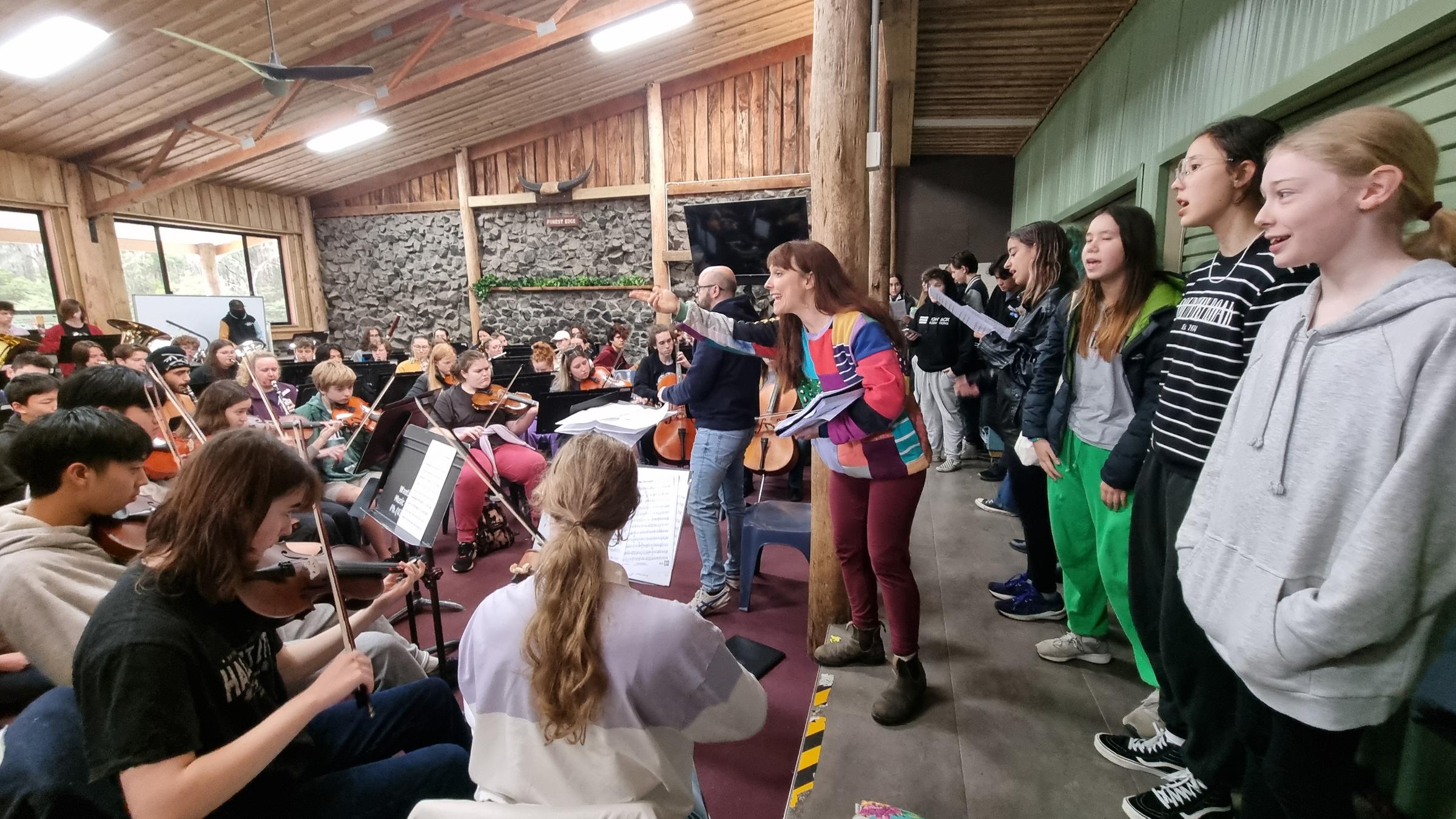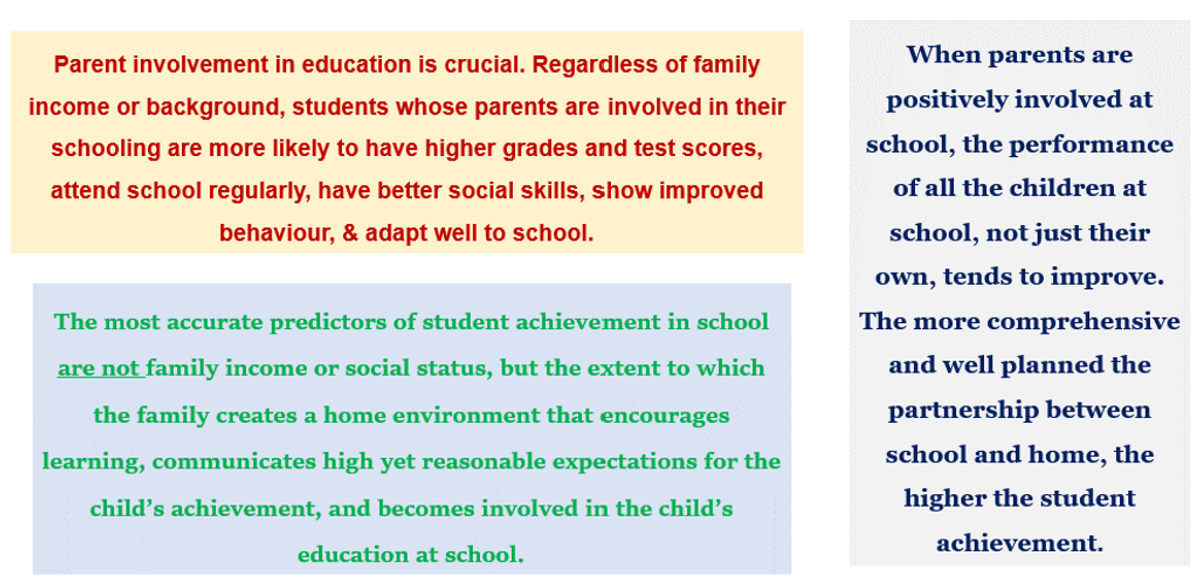Learning & Teaching

Music Camp
I had the pleasure of attending this week's Music Camp with 18 staff from the Music team and about 180 students. We arrived on Monday at the beautiful CYC Forest Edge camp with truckloads (literally) of equipment, high expectations and lots of energy. Over three days the staff and students worked together beautifully, participating or leading 5-6 rehearsal each day for the many different ensembles and bands available to students. Physical activities took place in the gym (basketball, pingpong etc), the low ropes course, and disc golf, as well as walks around the camp. The food was great, staff were wonderful, and the students' behaviour and participation was excellent.
Highlights for me included the VCE performances on the final night, the gala finale rehearsal with everybody on the final morning, the trivia night comp organised by the Performing Arts Captains and a tribute song performed by the VCE students to the teachers at camp's end, showing their appreciation for the teaching staff - especially Danny and Nicholetta.
Congratulations to the staff and all the students involved. I look forward to listening to the fruits of their labour at the Spectacular Gala Concert on Wed 18th September - Save the Date!
The Impact of Pornography
It's challenging for our children to navigate an increasingly more complex world, both real and online. There is a lot of negative and potentially damaging content young people might be exposed to online regardless of whether they are searching for it.
As a school, we deal with incidents of students knowingly or unknowingly engaging in activities that are harmful, unethical and sometimes illegal, by using, generating and sending inappropriate sexual content. The problem is exacerbated because this type of behaviour has been somewhat normalised through the accessibility of sexually explicit images, nude and semi-nude images and pornography. For example, over 1/4 of young people have sent a nude or nearly nude image of themselves, and 42% of young people have received a nude or nearly nude image of someone else.
Unfortunately, pornography is frequently accessed by young people, and they increasingly get their 'sex education' from this very harmful and unrealistic content. One recent survey shows that 86% of male and 69% of female participants between 15–20 years old, have seen pornography (source). If we are not prepared and capable of talking to our young people about these issues. they learn about sexual heath and sex from these online sources.
We recognise this as an issue and are putting steps in place to educate students about this important topic. Through the Elevate Program at Year 9 & 10, our Health teachers are tackling this difficult subject by skilfully and tastefully drawing attention to the messaging within sexualised images and content. They are helping student to critically evaluate and reflect on the media they consume and are exposed to. We are also using more individualised, personalised programs at the College to support students to manage their access and use of inappropriate content.
We have also engaged the services of a world-renowned expert in sexuality education, Dr Maree Crabbe to present to the staff next term about the dangers of the increasingly powerful pornography industry. Through an increased awareness, teachers can build skills in students to question the sources, authenticity of messages/messengers and the realism of online content.
Here is an excerpt from Maree's Website:
'Pornography conveys complex messages about gender, power, sexual health, bodies, pleasure, consent, performance, sexuality and sex. Young people often do not have the critical frameworks required to deconstruct and understand these messages. Many schools are looking for assistance to respond to incidents involving explicit sexual imagery. More and more schools are also keen to implement a broad, proactive approach to preventing the harms associated with pervasive and often-aggressive pornography, and to equip students to navigate healthy social and sexual development in the 21st century.'
This is our aim too.
What can Parents Do?
- FollowTHIS LINK to advice from Maree to parents for further reading - WARNING: it contains some very sobering statistics and details about the porn industry and content that is freely and easily available to view.
- There is a nice little article HEREfrom the SMH also about starting a conversation with your child.
Parent Involvement in School
We always encourage parents to take an active interest and involvement in their child's learning. Research tells us that it makes a difference when parents get involved in the right way. The following are a few facts on the matter from reputable educational research organisations.
Here is some helpful guidance on how to support your child with their homework (tasks they have to complete to prepare for class) and study (activities they are engaging in to support their own learning and build their confidence - not always set by the teacher).
Parents and caregivers help their children by: -Ensuring you have a Parent COMPASS login and MAESTRO login to understand where your child is in their learning, what they are expected to learn, and how to communicate with the school/teachers, if necessary.
-Ensuring there is a balance between time spent on homework and recreational, family, and cultural activities.
-Providing a suitable study area that is conducive to learning, including communal areas where parents can actively support and supervise homework activities.
-Encouraging your child to take increased responsibility for their learning and organisation by using a diary, recording due dates for key tasks, staggering workload for big homework tasks, establishing a weekly activities schedule, prioritising key tasks, and setting goals for home learning.
-Having regular conversations about learning and homework tasks - not necessarily helping them directly with the task but showing them how to source the right information to complete the work.
-Reinforcing focused study, without distractions from electronic devices, television, and social media.
-Supporting your child to access homework supports such as homework club and study groups.
Natalie Manser
Assistant Principal
mar@wantirnacollege.vic.gov.au


